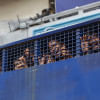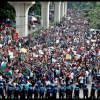BNP’s pledge for reforms sounds good

BNP's acting chairperson Tarique Rahman made a number of promises on Thursday, which we hope the party sincerely intends to fulfil. Such promises, however, are nothing new. We have heard similar promises when a party was not in power only to see them being forgotten after coming to power. Nevertheless, the promises made by BNP in its reform agenda sounds promising on paper.
Tarique emphasised building a Bangladesh where not even the prime minister could abuse power, highlighting principles such as the rule of law, human rights, freedom of speech, transparency, and accountability. Drawing from BNP's "31-point Outline for Structural Reforms," he reiterated some objectives that are both novel and ambitious. For instance, no party has previously placed much emphasis on ensuring a free press. But Tarique declared his resolve to enable the media to "speak truth to power" and openly criticise the government. If implemented, this would mark a significant departure from the Awami League's harsh persecution of dissidents and journalists. Furthermore, the proposed reforms to curtail the government's excessive power—including the introduction of a bicameral parliamentary system and limiting the prime minister's tenure to two consecutive terms—suggest that the party might be embracing more mature political practices.
Unfortunately, if we observe the party's actions, we can deduce that it is already faltering in realising some promises, mainly that of curbing corruption. For example, there have been multiple reports of "BNP-linked" groups extorting citizens, with its party members or activists allegedly filling the void of AL-established syndicates—as well as regular infighting within the party. While BNP leadership has issued warnings against such behaviour, more decisive actions are necessary. Otherwise, such incidents will continue to cast doubt on assurances from BNP's leadership and make it harder for citizens to place their trust in the party.
BNP's pledge to build an inclusive, liberal, and democratic Bangladesh—by balancing power among the legislative, judicial, and executive branches and dismantling the tools of oppression used by past governments—is commendable. However, sincerity is the key to achieving such a transformation. Much of the scepticism surrounding BNP—as well as other political parties—could be addressed if the party itself practiced democratic principles, such as decentralising its decision-making process. Additionally, it could move away from the failed dynastic politics of our region, which has acted as an obstacle to the democratisation process.
The July uprising demonstrated that people are fed up with dynastic politics driven by violence, oppression, and corruption. Many have sacrificed their lives to break free from this system and secure the rights of all citizens. All political parties, including BNP, must honour these sacrifices and ensure they are not in vain.


 For all latest news, follow The Daily Star's Google News channel.
For all latest news, follow The Daily Star's Google News channel. 









Comments